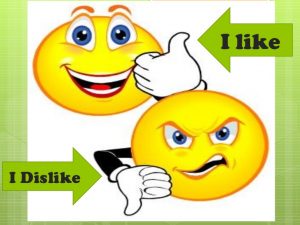 Why we like some people while hate others?
Why we like some people while hate others?
We all have our own triggers when it comes to dealing with “difficult” people. Now, whom I label as difficult might be a friend of yours; or may be the most liked person in some association or group. Our likes and dislikes stem from our upbringing, conditions, perspectives, and our experiences in life. It sounds illogical at times, while explaining others regarding our likes and dislikes. But, once our beliefs are formed which are sum total of all our life’s experience it becomes a bit difficult to delete it all.
As we grow up, our unconscious recognitions and identifications of who we are, what we believe in, what we like or dislike, what we hope for, what we fear, what we want etc. are shaped by our personal experiences and environmental conditioning. We tend to seek out and attract people who will confirm to us what we already think, believe, expect or want to know more about. And, yet we hardly have control on people who exists in our lives; we cannot choose our relatives, our neighbors, our colleagues, our classmates, our bosses, our peers, we have absolutely no control over our life associations. The most profound truth is we don’t even choose our parents and siblings. When you find yourself liking or disliking someone it is because you are picking up on the vibrations that a person is emitting at that given time, and this you are doing in a particular state of mind.
what we believe in, what we like or dislike, what we hope for, what we fear, what we want etc. are shaped by our personal experiences and environmental conditioning. We tend to seek out and attract people who will confirm to us what we already think, believe, expect or want to know more about. And, yet we hardly have control on people who exists in our lives; we cannot choose our relatives, our neighbors, our colleagues, our classmates, our bosses, our peers, we have absolutely no control over our life associations. The most profound truth is we don’t even choose our parents and siblings. When you find yourself liking or disliking someone it is because you are picking up on the vibrations that a person is emitting at that given time, and this you are doing in a particular state of mind.
Our life is nothing but a big story comprising of short inter-woven stories. Some of those short stories are pleasant while some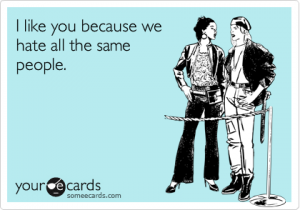 might not be so good. Now all those short stories (experiences) are connected with other people. We feel good when we are with some people and some people make us feel uncomfortable. We feel a sense of ease around some of them. Those people, who vibrate states opposite to ours at any given time, make us feel bad or uneasy. Some of them aresensitive, moldable and some people really don’t care for anything.
might not be so good. Now all those short stories (experiences) are connected with other people. We feel good when we are with some people and some people make us feel uncomfortable. We feel a sense of ease around some of them. Those people, who vibrate states opposite to ours at any given time, make us feel bad or uneasy. Some of them aresensitive, moldable and some people really don’t care for anything.
For some people telling lies is a habit; it becomes a pattern of life for them; while for some cheating or deceiving habit is by default. There are those others for whom moral values are bygones. While some are sensitive; some are caring, some friendly, helpful and compassionate.
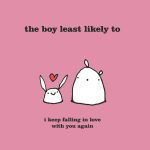 There is something very intense to know about our like-hate feelings; that all the qualities we hate in others are things that we see in ourselves and don’t like. So, when you meet people who ‘exhibit’ the qualities that you like about yourself, you click with them. We also tend to like certain people when we find in them a mixture of the things that we like about ourselves and the opposite of the things we hate about ourselves. However, we click with this combination of people, I suppose because they portray both qualities which we like about ourselves and dislike about ourselves.
There is something very intense to know about our like-hate feelings; that all the qualities we hate in others are things that we see in ourselves and don’t like. So, when you meet people who ‘exhibit’ the qualities that you like about yourself, you click with them. We also tend to like certain people when we find in them a mixture of the things that we like about ourselves and the opposite of the things we hate about ourselves. However, we click with this combination of people, I suppose because they portray both qualities which we like about ourselves and dislike about ourselves.
Each of us is unique. While falling in love, we don’t fall in love with just anyone. We have deep and peculiar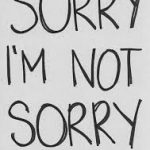 preferences. Why do we fall in love with that one person rather than anyone else? Research has proved that there is much evidence that people generally fall in love with those who share the same socioeconomic and cultural background; also, the age is similar, with the same degree of intelligence and level of education, and with a similar sense of humor and grade of attractiveness. But, when we come across multiple people from our background, with our level of education, degree of intelligence and good looks, we don’t fall in love with all of them, we choose only one. That’s because there is room only for one. Love is of your own free will accepted illusion. Sure, when we fall in love, we feel that we’re in love, but feeling – like everything else we experience is hunky-dory – all originates from the brain.
preferences. Why do we fall in love with that one person rather than anyone else? Research has proved that there is much evidence that people generally fall in love with those who share the same socioeconomic and cultural background; also, the age is similar, with the same degree of intelligence and level of education, and with a similar sense of humor and grade of attractiveness. But, when we come across multiple people from our background, with our level of education, degree of intelligence and good looks, we don’t fall in love with all of them, we choose only one. That’s because there is room only for one. Love is of your own free will accepted illusion. Sure, when we fall in love, we feel that we’re in love, but feeling – like everything else we experience is hunky-dory – all originates from the brain.
Among the countless elements that shape our romantic choices is an unconscious list of qualities we begin to build in childhood. Characteristics of our parents; mother’s efficiency in kitchen, her style of dressing up, her sense of humor, her warmth; father’s looks, his style of dressing, his interest in cars, politics, games; our siblings – their characteristics, their likes and dislikes. So there we go, our childhood and adult experiences shape and reshape outline of our romantic partner. We either follow our mother or father. One of them influences us terribly; so, sometime if we are told so and so qualities are best suited for your partner; we start searching for one such partner. Each one of us constructs an eccentric/idiosyncratic catalog of traits, values, aptitudes, and mannerisms that appeal to us. Then, when the timing is right and we meet a person with those traits he/she registers on our love map.
Characteristics of our parents; mother’s efficiency in kitchen, her style of dressing up, her sense of humor, her warmth; father’s looks, his style of dressing, his interest in cars, politics, games; our siblings – their characteristics, their likes and dislikes. So there we go, our childhood and adult experiences shape and reshape outline of our romantic partner. We either follow our mother or father. One of them influences us terribly; so, sometime if we are told so and so qualities are best suited for your partner; we start searching for one such partner. Each one of us constructs an eccentric/idiosyncratic catalog of traits, values, aptitudes, and mannerisms that appeal to us. Then, when the timing is right and we meet a person with those traits he/she registers on our love map.
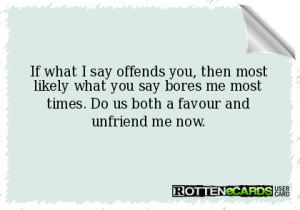 Let’s accept like we do, others also have right to like or dislike us. We should not have the great feeling about ourselves that others should unconditionally accept us for what we are. If someone doesn’t like you, it doesn’t have to matter. The great Albert Ellis who was an American psychologist and who in 1955 developed Rational Emotive Behavioral Therapy (REBT) said that one of the best ways to create desolation is to work from the mindset that all people must like you at all times. If you have this notion – for God’s sake you will not only fail at it, but this approach to life will cause you to constantly be modifying your own thoughts, behaviors and identity to suit the perceived desires of those around you. This sugary pretense will ultimately be detected and people will know you aren’t being your true self. This just won’t cut it.
Let’s accept like we do, others also have right to like or dislike us. We should not have the great feeling about ourselves that others should unconditionally accept us for what we are. If someone doesn’t like you, it doesn’t have to matter. The great Albert Ellis who was an American psychologist and who in 1955 developed Rational Emotive Behavioral Therapy (REBT) said that one of the best ways to create desolation is to work from the mindset that all people must like you at all times. If you have this notion – for God’s sake you will not only fail at it, but this approach to life will cause you to constantly be modifying your own thoughts, behaviors and identity to suit the perceived desires of those around you. This sugary pretense will ultimately be detected and people will know you aren’t being your true self. This just won’t cut it.
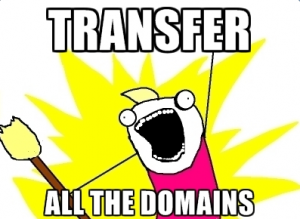 So, friends it’s perfectly fine to like some people while not like others. It’s very normal. The best thing to do is accept that this fact. Having accepted this fact, we need to do something further; let’s not waste time on being judgmental about others around us. We don’t realize this but it is time consuming activity. We’re all mortal, human, and totally imperfect. And, when you think you are being judged, you probably aren’t. It’s really too hard to judge every single person you meet, analyzing their flaws and imperfections. Push your limits little further – for concentrating on yourself – increasing your self-worth. Learn to catch yourself when you start over-thinking about others. Recognize this pattern of abuse and do something to overcome it. The only thing that needs to shift in order for you to experience more happiness, more love, and more vitality, is accepting you have power to change yourself not others. In short, LIVE AND LET LIVE.
So, friends it’s perfectly fine to like some people while not like others. It’s very normal. The best thing to do is accept that this fact. Having accepted this fact, we need to do something further; let’s not waste time on being judgmental about others around us. We don’t realize this but it is time consuming activity. We’re all mortal, human, and totally imperfect. And, when you think you are being judged, you probably aren’t. It’s really too hard to judge every single person you meet, analyzing their flaws and imperfections. Push your limits little further – for concentrating on yourself – increasing your self-worth. Learn to catch yourself when you start over-thinking about others. Recognize this pattern of abuse and do something to overcome it. The only thing that needs to shift in order for you to experience more happiness, more love, and more vitality, is accepting you have power to change yourself not others. In short, LIVE AND LET LIVE.













































